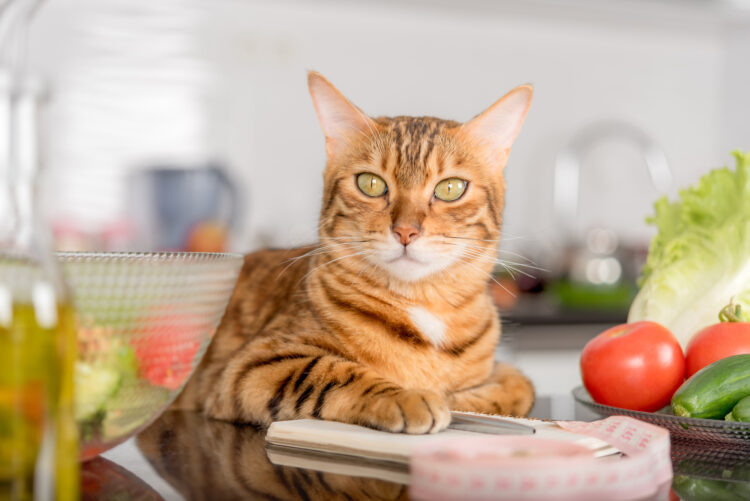
People adopt a vegan or vegetarian lifestyle for any number of reasons, some of them health related, others as a conscious choice to help the planet, or because of a genuine concern about animal rights. This lifestyle choice may present an ethical dilemma for cat parents who believe that their cats’ diet should reflect their human beliefs about the treatment of animals and an environmentally sustainable lifestyle. However, putting cats on a vegan diet is an irresponsible and potentially dangerous choice that puts their health at risk.
Cats are obligate carnivores
As obligate carnivores, cats need at least some meat protein in their diet to survive. Unlike dogs, who are omnivores and might be able to survive on a plant based diet, cats require meat protein. Dietary protein supplies amino acids needed for the manufacture of antibodies, enzymes, hormones, and tissues. It provides energy and is essential for growth and development. Protein derived from meat and poultry contains ample amounts of these essential amino acids. Insufficient intake of these essential amino acids can lead to severe health issues, including heart problems, poor immune function, and even blindness.
Cats need taurine
Another significant difference in nutritional requirements compared to other species is cats’ need for taurine, which is important for proper functioning of the heart and for good eye health. Meat is a natural source of taurine; it is not available in plant tissues. Commercial cat foods did not contain this important amino acid until 1987, when veterinarian Paul Pion identified the link between a lack of taurine in cats’ diets and feline dilated cardiomyopathy, a fatal heart disease that has been largely eliminated in the pet cat population since then.
False claims about vegan diets for cats
There are common misconceptions surrounding the concept of vegan cats. Proponents of vegan diets claim that cats can obtain all necessary nutrients from plants, or synthetically. These claims are mostly based on studies done for humans, and don’t take the unique biology of cats into account. Some believe that cats can adapt to a vegan diet over time, but this is simply not true. Cats lack the necessary enzymes to effectively break down and utilize plant-based proteins, making it impossible for them to derive essential nutrients from such sources. While supplements can be added to a diet to compensate for some deficiencies, supplements cannot replicate the complexity and effectiveness of nutrients naturally found in animal tissues.
The dangers of feeding a cat a vegan diet
Feeding a cat a vegan diet poses significant risks to their health and longevity. Without access to animal-based proteins and essential nutrients, cats can suffer from malnutrition, a weakened immune system, and muscle wasting. In addition to the heart and eye issues we addressed previously, cats on a vegan diet may also struggle with digestion issues. Their bodies are not designed to efficiently process plant-based proteins and carbohydrates.
Veganism is a choice for humans, but not for cats
While veganism is a personal choice for humans, cat parents who choose to eat vegan or vegetarian must respect that cats have different and unique nutritional needs. By providing cats with an optimal diet for an obligate carnivore, vegan cat parents can ensure their cats’ health and well-being and still honor their personal commitment to animal welfare by choosing feline diets manufactured by ethical companies using humane and sustainable practices.
Choosing ethical cat food
This post is sponsored by Darwin’s Natural Pet Products*, a company who takes words like “consciously-sourced” seriously. They make sure all of the animals in their care, including the ones they use for their meats, are treated humanely by personally visiting farms and sourcing only from suppliers they trust.
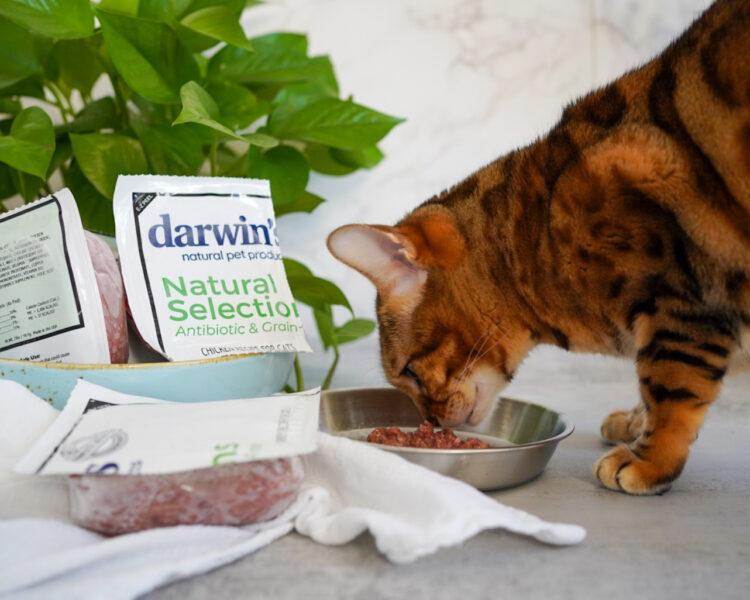
About Darwin’s Natural Pet Food
Darwin’s is doing everything right, both in terms of what’s in the food and what’s not:
- 100% meat – no animal-by-products or fillers
- Ethically sourced human grade ingredients from farms they trust
- Formulated under the guidance of veterinary nutritionists
- Free range, pasture raised, cage-free meats
- No GMO
- No steroids
- No hormones
- Made fresh: you will receive your meals 4-6 weeks from production
- Ready to serve
Delivered right to your door
Darwin’s is packed in eco-friendly packaging with dry ice to ensure that food is shipped and delivered safely. The packaging can be recycled or composted. They offer a convenient autoship schedule so you’ll never have to worry about running out of food. The timing of delivery is flexible, and Darwin’s friendly customer service team will gladly adjust your schedule as needed.
Feeding Darwin’s is as easy as opening a can
The food come packaged in convenient 8 ounce sealed packs. It takes about 24 hours for one pack to thaw in the refrigerator, so feeding is no harder than feeding canned food. The only difference is that instead of opening a can, you’re defrosting a pack of food.
Special offer: get 10 pounds for $14.95
Darwin’s has an introductory offer that can’t be beat so you can try this for your own cats: For $14.95, you get 10 pounds of raw food. You can customize the proteins depending on your cat’s taste preferences.
Use code PURRSOFWISDOM to take advantage of this special offer.
For more information and to order, please visit DarwinsPet.com.
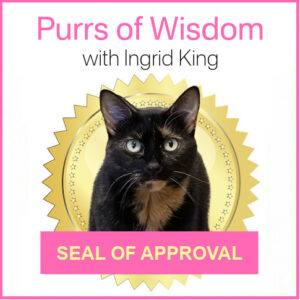
*This post is sponsored by Darwin’s Natural Pet Products. Purrs of Wisdom is an affiliate partner of Darwin’s Natural Pet Products. This means that if you decide to purchase through any of our links, we get a small commission. We only spread the word about products and services we’ve either used or would use ourselves.
Image Depositphotos

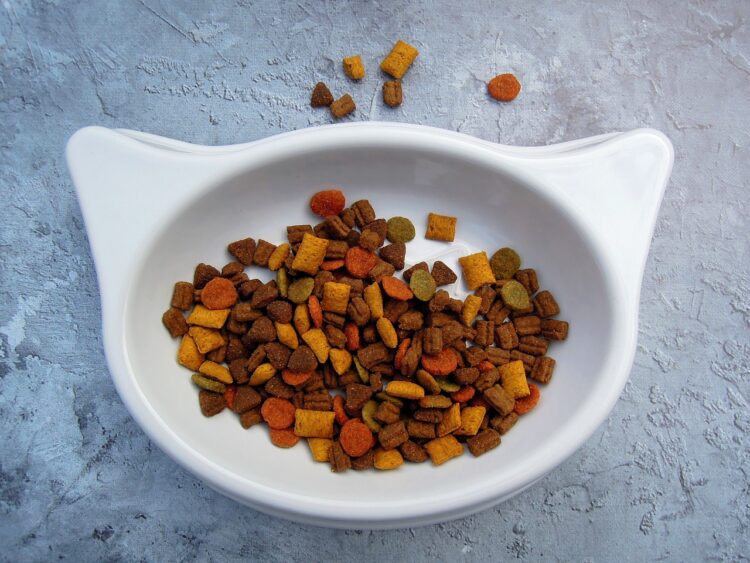
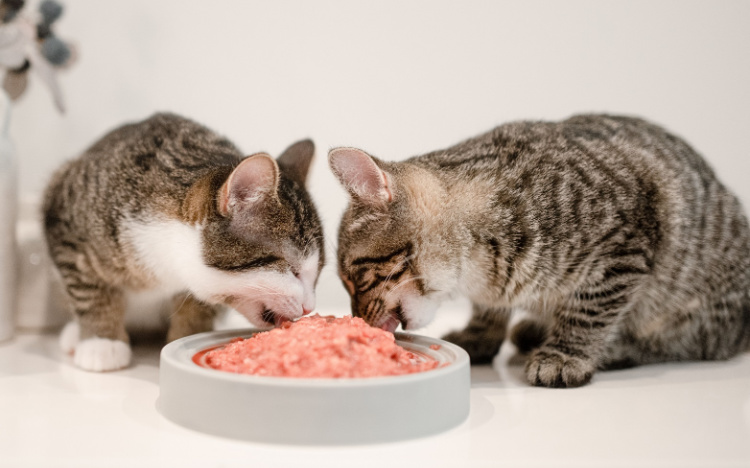
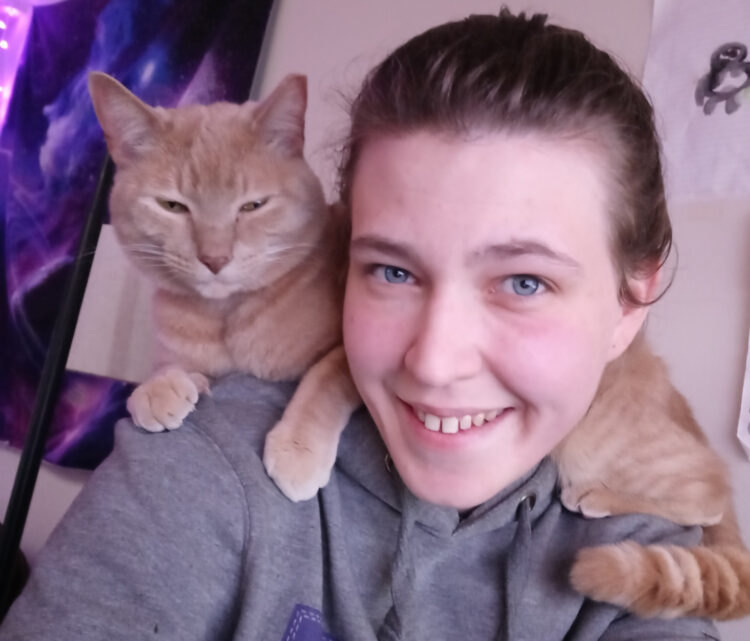
I haven’t seen this in a while, but it used to drive me crazy when someone on social media would say their cat was on a vegan diet. They can’t force their beliefs on their cats. They need meat.
How irresponsible of the NY Times to do that. Opinions are one thing, but this op-ed appeared to be absent of factual info (to conclude with the concept of making one’s pet vegan).Thanks, Ingrid, for the factual info. My poor Dawnie is on a prescription urinary diet so we’ll have to pass up on this generous offer.
Ever since the grain free vs grain diet controversy because DCM in dogs, they have started pitting Taurine in dig food and supplements.
I am glad you published this info again. People used to know this, but recetly there was an OpEd in the New York Times, of all places, from someone who suggested we consume less meat and even save lots of money by turning our pet cats and dogs into vegans. I am not a published author nor a veterinarian so I didn’t choose to write any comment, but hopefuly your article will be read by many people.